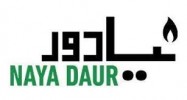Shrinking Civic Space and Media Suppression in Jammu & Kashmir
There comes a moment in every conflict when the war is no longer fought on land, but on truth. Indian occupied Jammu & Kashmir (IoJK) has now entered that moment.
The raid on the Kashmir Times office on November 20, 2025, an office that had been shut since 2021, fits squarely into this pattern. It is part of a wider doctrine: to control the narrative by criminalizing the narrator.
International observers, from UN Special Procedures, also agree that IoK is no longer just a militarized zone, it is now an information frontier. In this space, journalism is treated as insurgency and truth-telling is viewed as sedition. This transformation is not accidental. It is strategic, systematic and deeply political. New Delhi seeks not only territorial control over IoK but discursive control and for that, journalism must be neutralized. This shift reflects a classic pattern in international relations where states facing internal crises of legitimacy turn to information control, narrative securitization and coercive legal frameworks to manufacture the appearance of stability.
What followed since 5 August 2019 is not only the region’s political disenfranchisement but also the systematic dismantling of its entire information ecosystem. In disputed territories, where international monitoring is already limited, dismantling the local press is equivalent to severing the world’s last line of sight. IoK today........






















 Toi Staff
Toi Staff Gideon Levy
Gideon Levy Sabine Sterk
Sabine Sterk Tarik Cyril Amar
Tarik Cyril Amar Stefano Lusa
Stefano Lusa Mort Laitner
Mort Laitner John Nosta
John Nosta Ellen Ginsberg Simon
Ellen Ginsberg Simon Gilles Touboul
Gilles Touboul Mark Travers Ph.d
Mark Travers Ph.d Daniel Orenstein
Daniel Orenstein
